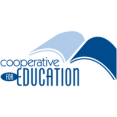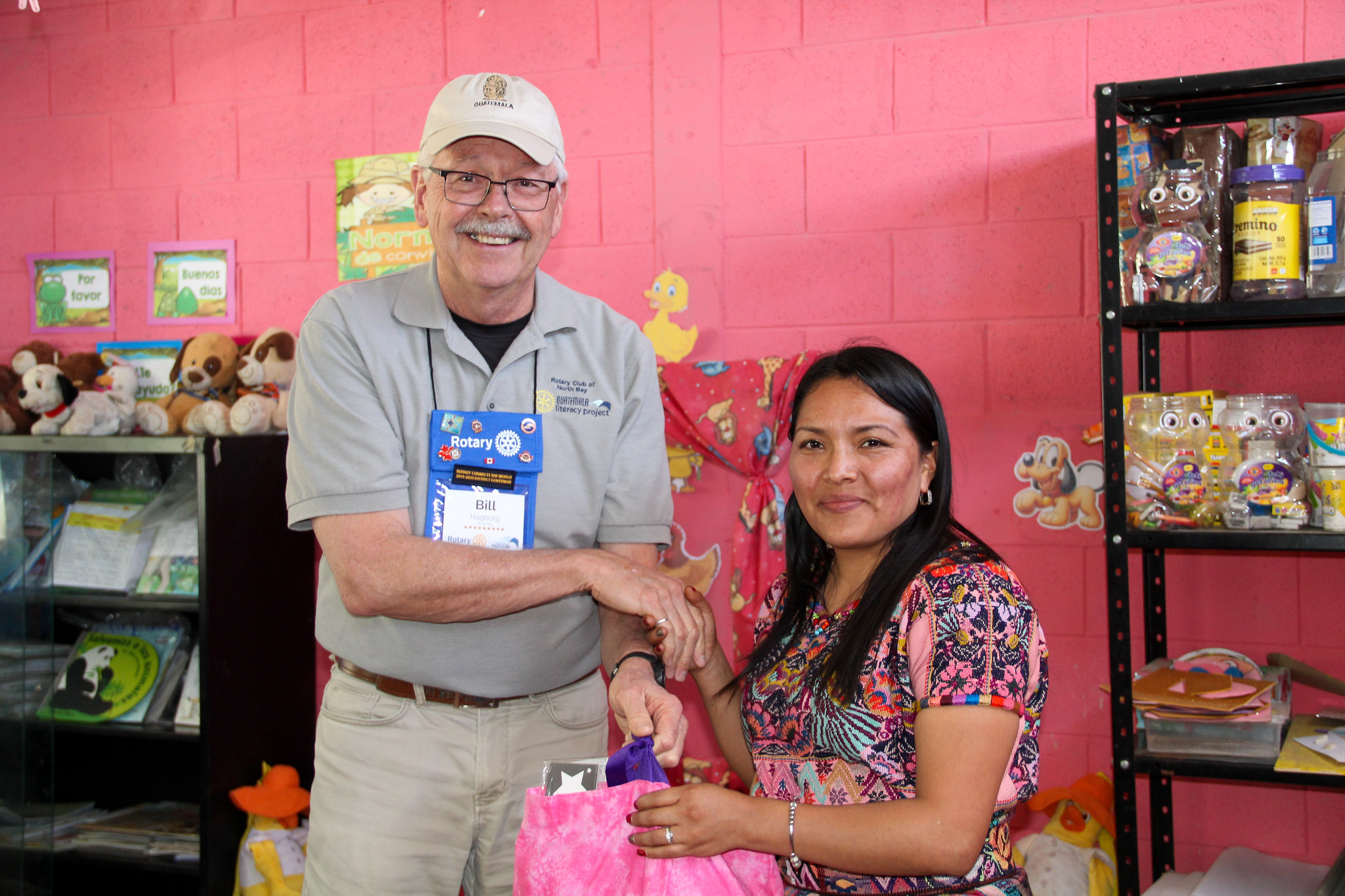
Spark teacher Heidy with CoEd supporter Bill
A bright neon green school stands out at the end of a long winding road outside Quetzaltenango, where hillsides are dotted with humble homes made of cinderblock and corrugated metal, and terraced rows of crops cascade down the side of the mountain. Panajachel school serves over 180 students in this local community and is a vital part of the lives of children in this rural area. It’s a place where the lasting impact of dedicated teachers like Heidy can be both seen and felt in the classroom.
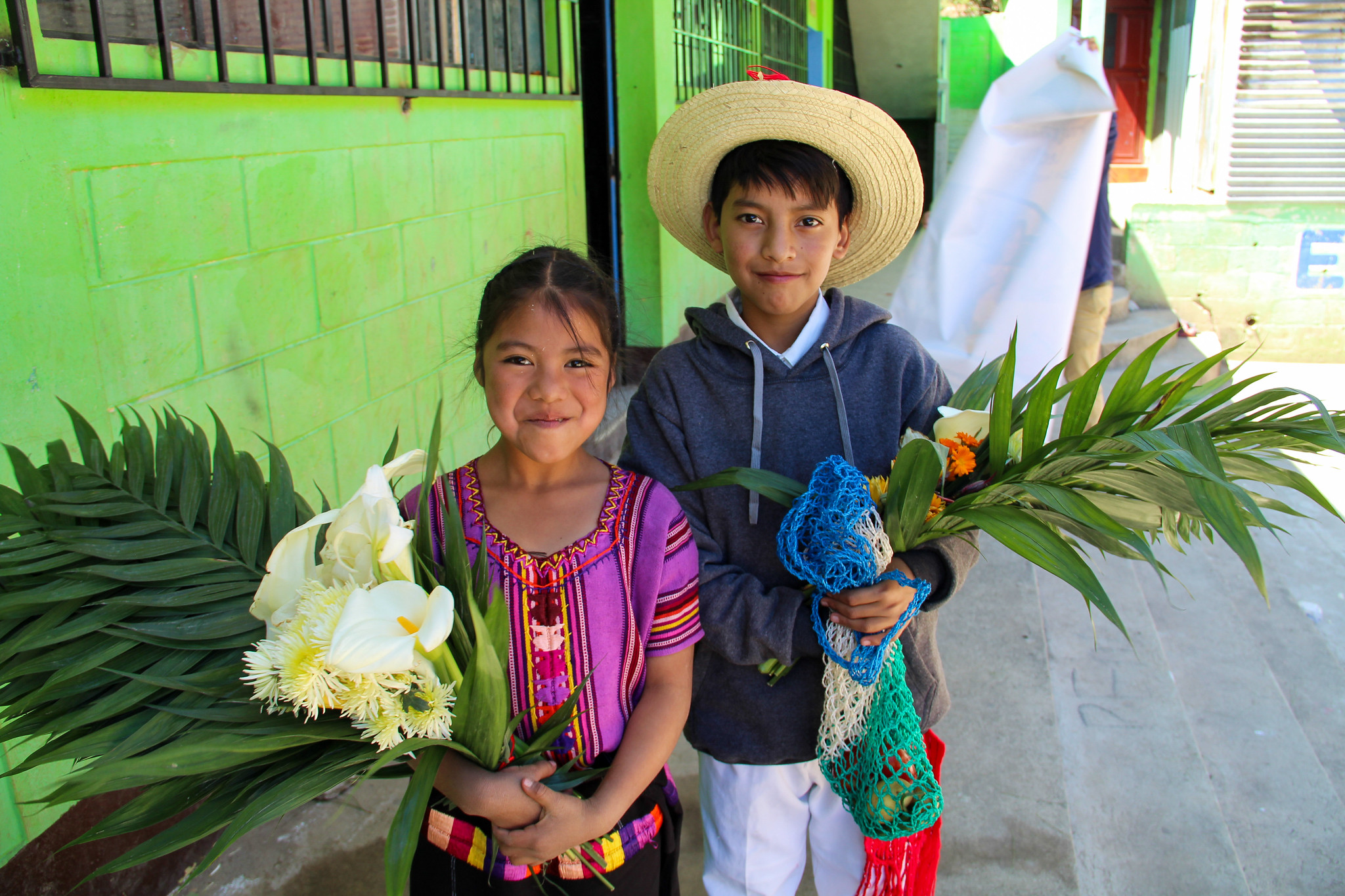
In Heidy’s classroom, many of her students speak Mam, an Indigenous Mayan language, and they are learning Spanish as a second language. The educational system in Guatemala has not traditionally offered much support for teaching Spanish as a second language, especially for students who speak one of Guatemala’s 21 Mayan languages. Despite this challenge, Heidy has found an effective solution through the Spark Reading methodology.
Through the Spark Reading Program, Cooperative for Education (CoEd) has provided Heidy with not only 150 children’s books, but countless strategies—and teaching materials like flipcharts—that allow her to make the learning process more engaging and effective for her students. These resources have been vital for Heidy in creating an inclusive and dynamic learning environment. In class coaching sessions from CoEd’s team of Spark trainers ensure that Heidy is prepared to use the program’s materials effectively in the classroom.
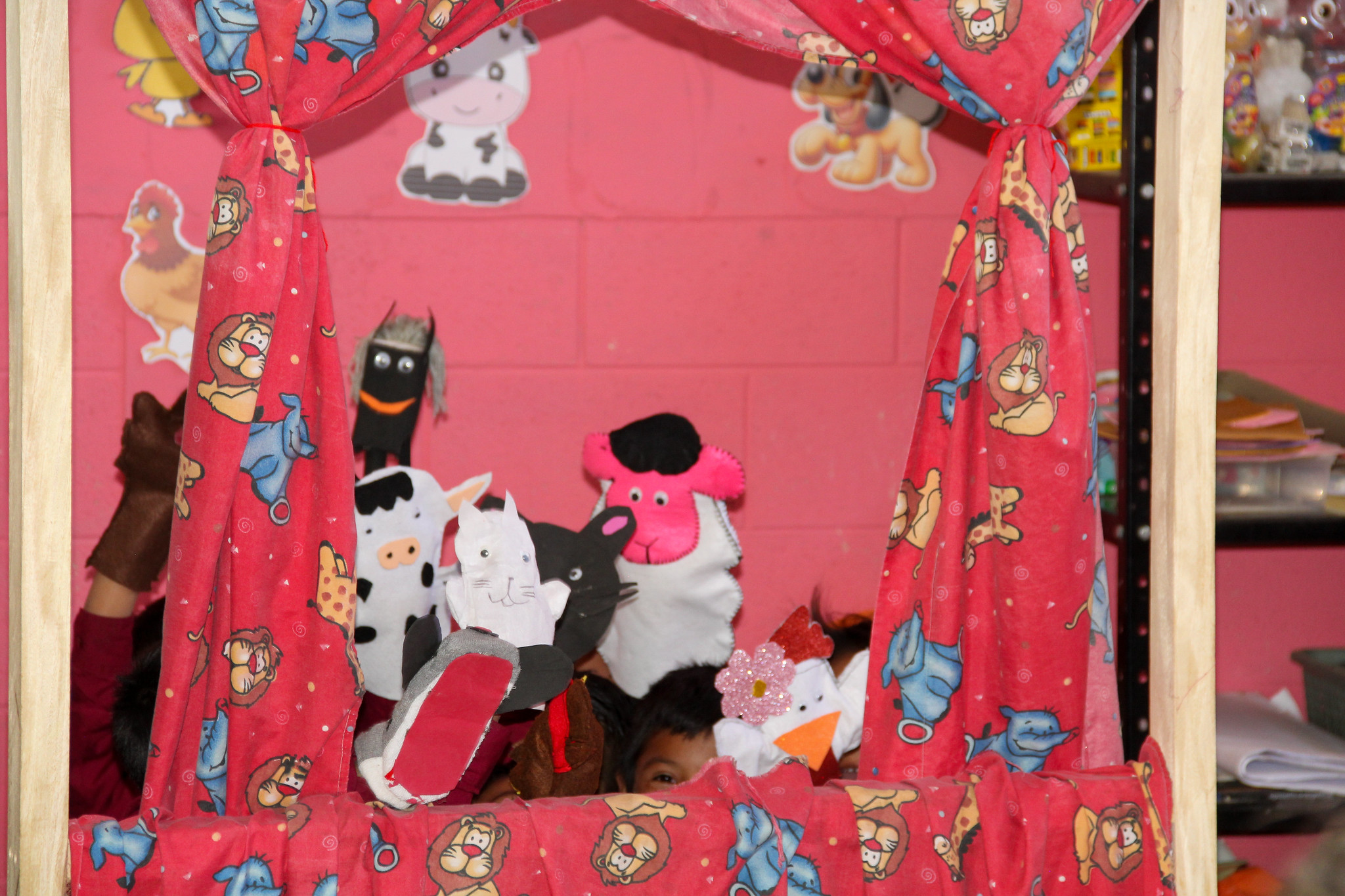
Over the course of her 16 years at Panajachel school, Heidy has seen significant changes. When she first arrived, the students had little more than blocks of wood for chairs and desks. Today, thanks to gradual improvements and support, the school has proper desks and other resources that have made a world of difference. Before CoEd’s Spark Reading Program, the school only had math books, but with the addition of age-appropriate literature in the classrooms, students now have access to a wide range of books and topics. For the students who speak Mam, it gives them access to the bilingual and Spanish language skills they need to succeed academically.
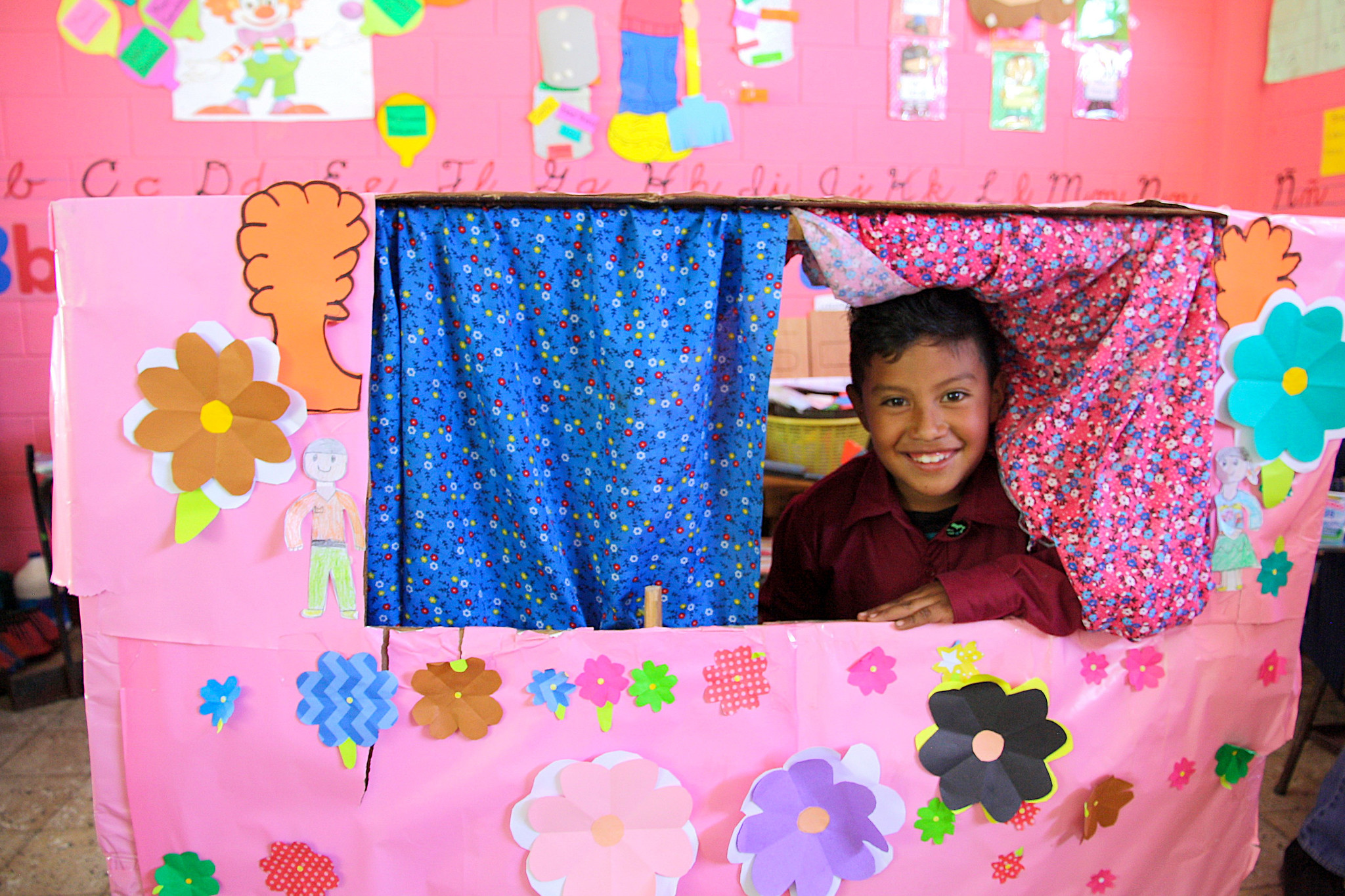
Mirna, a second-grade teacher at EORM Panajachel, adds,
“Before, the children struggled to express their thoughts, but now they can read and are much more confident in speaking and writing.”
Students are unlocking their potential, and the change is not just academic but personal. They are learning to express themselves and engage more fully in their own education. One of the most effective strategies Mirna has adopted is asking her students three simple but powerful questions: “What do I know?” “What do I want to know?” and “What did I learn?” These questions guide the students and teacher in their reading journey, helping them reflect on their progress and allowing students to become more thoughtful and self-aware.
Through this holistic approach to education, EORM Panajachel has transformed from a school with limited resources to a thriving center of learning where students gain knowledge and develop the confidence and skills they need for the future. With the continued dedication of teachers like Heidy and Mirna—now strengthened with the skills they’ve learned through Spark—Panajachel school is creating lasting change in the lives of these young learners, one book at a time.
